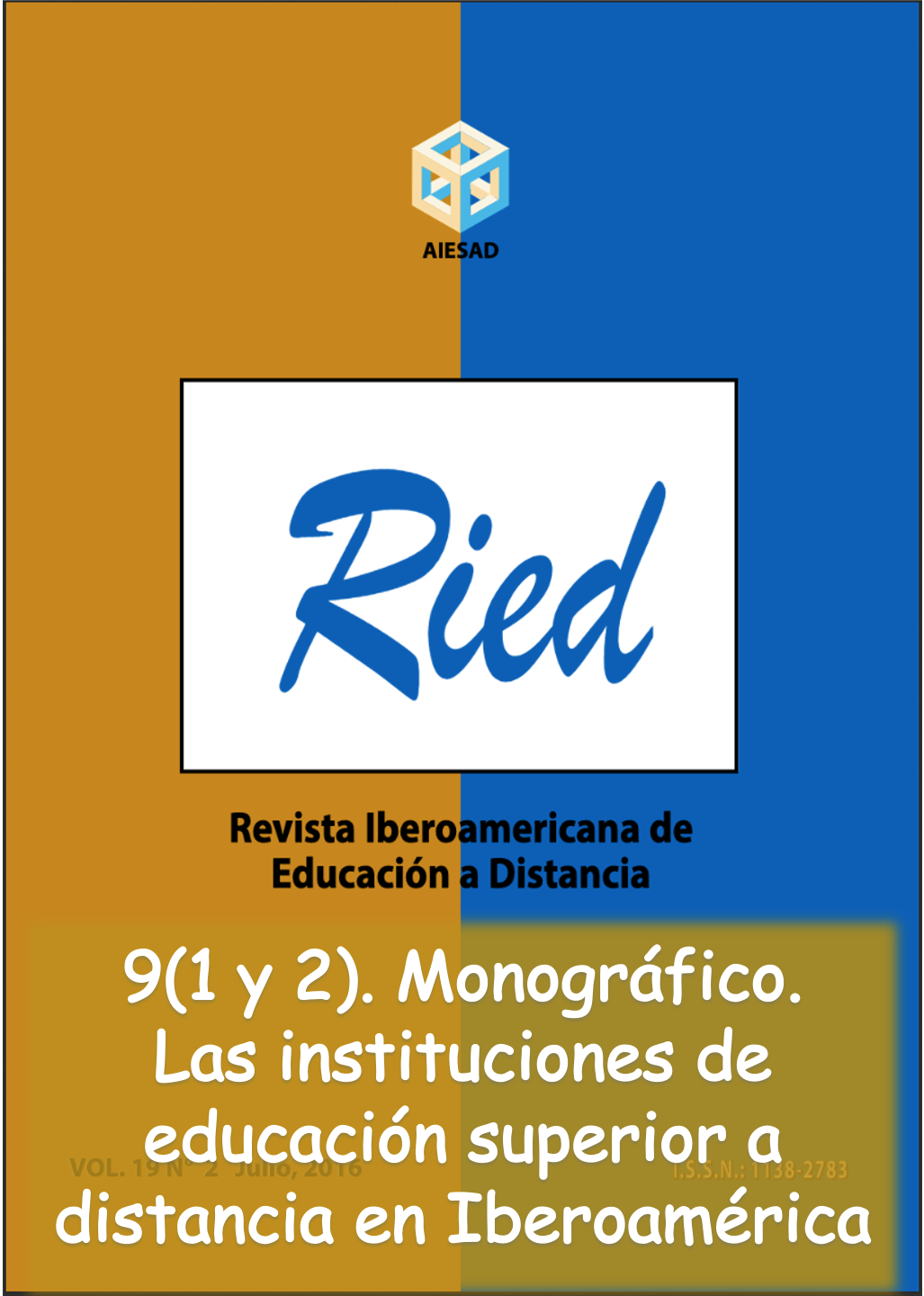Initial and in service distance education at the Faculty of Education of the Pontificia Universidad Catolica del Perú
DOI:
https://doi.org/10.5944/ried.1.9.1037Keywords:
distance education, human development, blended delivery mode, face to face and distance, development projects, specialization diplomasAbstract
Distance education constitutes a valid alternative delivery mode in initial and in service professional education for the students of the Faculty of Education of the Pontificia Universidad Católica del Perú. Because of its flexibility of time, strategies, and learning styles, it makes it possible to respond to the demands of pre-service and in-service development from teachers of different places of the country, and to involve sectors of the population who cannot enroll in face to face education for different reasons. At the same time, it allows students to develop autonomy in learning, to learn at their own pace without suffering from group pressure, to reinforce abilities that let them distinguish relevant information, to identify and use sources of information, to contrast information with reality, to construct knowledge and apply it adequately. In sum, to give the students the tools that let them continue their permanent study with responsibility, within a learning culture that tends to reach human development.
The article describes the process of implementation of distance education in the academic offer of the Faculty of Education, acquainting the reader with the latest development of this way of studying in the last twenty years.
Downloads
Downloads
How to Cite
Issue
Section
License
The articles that are published in this journal are subject to the following terms:
1. The authors grant the exploitation rights of the work accepted for publication to RIED, guarantee to the journal the right to be the first publication of research understaken and permit the journal to distribute the work published under the license indicated in point 2.
2. The articles are published in the electronic edition of the journal under a Creative Commons Attribution 4.0 International (CC BY 4.0) license. You can copy and redistribute the material in any medium or format, adapt, remix, transform, and build upon the material for any purpose, even commercially. You must give appropriate credit, provide a link to the license, and indicate if changes were made. You may do so in any reasonable manner, but not in any way that suggests the licensor endorses you or your use.
3. Conditions for self-archiving. Authors are encouraged to disseminate electronically the OnlineFirst version (assessed version and accepted for publication) of its articles before publication, always with reference to its publication by RIED, favoring its circulation and dissemination earlier and with this a possible increase in its citation and reach among the academic community.








